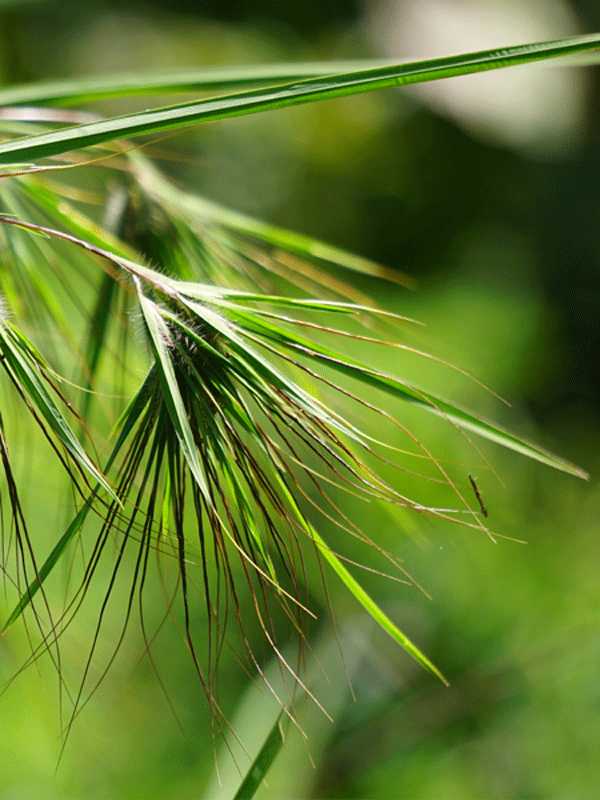– ABOUT
AUSTRALIAN GRASSLANDS INITIATIVE
Present-day, complex communities of rangeland grasses have evolved and dominated much of the Australian continent. The distinctive characteristics of these rangeland grasses are revealed by applying the principles and technologies of biogeography, phenotyping, biochemistry, molecular genetics, and evolutionary biology, providing new insights into adaptation and traits beneficial for agriculture and society.
Several genera have been identified and prioritised for analysis due to their relative distributions across Australian grasslands. These grassland communities from four common genera exhibit (A) widely contrasting distributions and (B) a diversity of ranges from narrow (e.g. Triodia compacta) to very broad (e.g. Themeda triandra). Themeda (kangaroo grass) will serve as a model due to its broad continental distribution.
Established in 2020, the key goals of the initiative include defining species’ ranges, testing resilience in controlled environments, assessing adaptations in photosynthetic machinery, and identifying stress tolerance genes. The collaborative project involves scholars, botanic gardens, industries, and agencies, contributing to germplasm conservation and raising awareness about the significance of Australia’s rangelands in climate-resilient systems.

OBJECTIVES
The creation of referential omic data resources for Australian native grasslands aims to achieve the following outcomes:
-
- Conserve germplasm within its natural distribution range.
- Identify functional traits and key genes or proteins for tolerance to extreme environments, applying these to cereals and pastoral grasses to enhance resilience to aridity, variable fertility, and biotic stresses.
- Strengthen connections between research agencies, including ARC Centres of Excellence, Linkage programs, and CSIRO.
- Increase public awareness of Australia’s rangelands as crucial gene sources to safeguard cropping and pastoral systems in changing climates.
The project’s success relies on contributions from scholars at universities (including Macquarie, Adelaide, Western Sydney, WA), botanic gardens (e.g. RBG, ANBG, Kings Gardens), seed and pastoral industries (e.g. agri-techs), and public agencies.
DATA
For further information and to view and access initiative data, please go to the Bioplatforms Australia Data Portal.
Request for Partnership now open
Join the Initiative
We invite researchers, organisations, and institutions to submit a Request for Partnership. Detailed guidelines, eligibility criteria, and timelines are available at the button below.
PARTNERS
hide
PROJECT CONTACTS
Brian Atwell – Scientific Lead
brian.atwell@mq.edu.au
CONTACT US
Program Manager
Mabel Lum – Bioplatforms Australia
mlum@bioplatforms.com
General Manager – Science Programs
Sarah Richmond – Bioplatforms Australia
srichmond@bioplatforms.com
